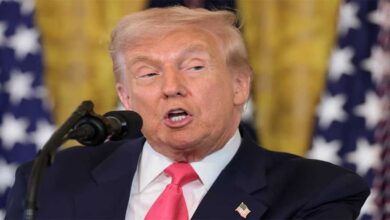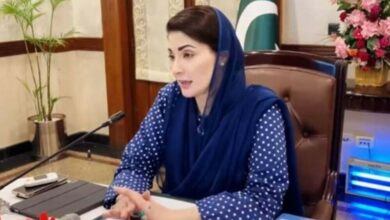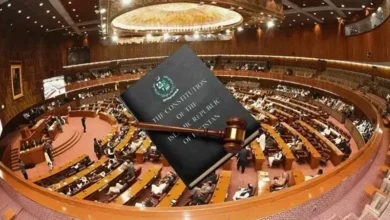Democracy is presented as the premier form of government to today’s youth through the bourgeoisie’s dissemination of knowledge. Consequently, capitalist ideologies persist at the periphery, perpetuating a cycle that has endured since its inception. History, presumed to shape politics through its events, is replete with elaborate narratives of ideological triumphs. But who educates the contemporary generation on the true essence of democracy? It’s the unmasked reality beneath the veneer of consumerism and beauty.
Abraham Lincoln, the 16th president of the United States, famously extolled democracy as the ultimate empowerment of the people, yet this sentiment offers only a fleeting illusion of hope and dismisses the existence of dissenters hungry for power. From the series of martial laws in Pakistan’s democratic history to India’s marginalization of its unions, there exist dark truths about democracy that cannot be ignored.
2024 is heralded as the year of democracies triumphing over democracies. Elections are being conducted in 75 countries, the majority of which, including Pakistan, adhere to democratic principles. Pakistan and its former ally, Bangladesh, have already held their general elections. However, the outcomes have been contentious, jeopardizing the essence of democracy. Al Jazeera reports accusations of election rigging favoring Sheikh Hasina Wajid in Bangladesh, while in Pakistan, the situation is even more dire.
According to data from the Election Commission of Pakistan (ECP), 56.86 million young voters cast their ballots for their preferred candidates.
On February 8, 2024, Pakistan held its 16th general election to reaffirm the principles of democracy. Despite being a nation torn by internal conflicts, the populace, particularly its youth, turned out in unexpected numbers, constituting 64 percent of the total voters, as per the UNDP report. This demographic shift altered the electoral landscape, challenging the credibility of democracy itself.
According to data from the Election Commission of Pakistan (ECP), 56.86 million young voters cast their ballots for their preferred candidates, only to witness manipulated election results favoring the establishment’s choices. Subsequently, internet curfews were imposed nationwide, dissenting voices were suppressed, and the facade of democracy gave way to disillusionment. However, the youth displayed resilience, exposing the system’s deceitful nature.
The political and economic elite, in collusion with the military, perpetuate a cycle of manipulation to safeguard their interests. Whether through delaying election results, squandering resources on rigged elections, or buying political candidates, the establishment maintains its stranglehold.
The battle against political manipulation and elitist control intensifies among the younger generation.
In an unprecedented move, the international media remained fixated on Pakistan’s election results for over 72 hours, highlighting irregularities and contestations. Both national and international outlets like The Guardian, Reuters, and Al Jazeera underscored the volatile situation, with results subject to legal challenges in Pakistani courts.
The ensuing tug-of-war exacerbates political instability, further crippling the already fragile economy. Peaceful protests are quashed, dissenters silenced, and fundamental rights infringed upon, as demonstrated by the mistreatment of senior women citizens.
Raids, blackmail, and bribery pervade the political landscape, distorting the essence of democracy and empowering the wealthy elite. However, the younger generation remains vigilant, empowered by newfound awareness. It’s a clash between power and conscience, with today’s youth refusing to yield. As the predecessors of the past succumbed, today’s youth stand firm, armed with knowledge and determination. It’s a battle of ideals—power versus conscience.











